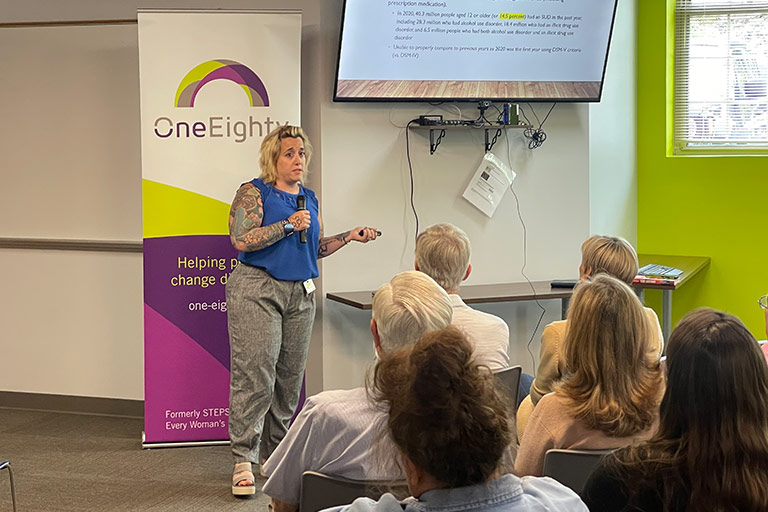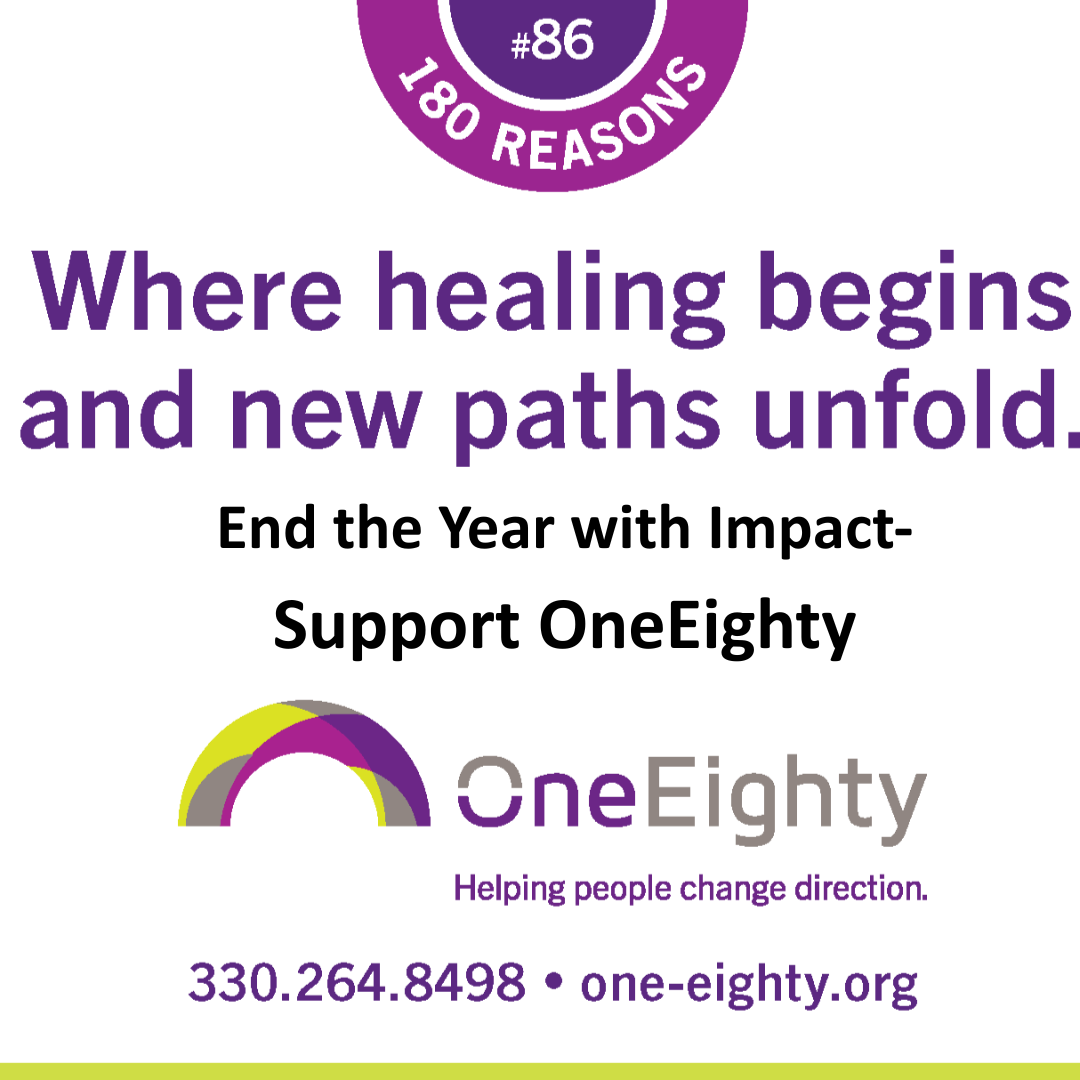The Continuum of Care Is Key to Preventing Relapse

What makes OneEighty unique in its approach to treating addiction is the continuum of care, the treatment journey a person takes from initial detox all the way through their path to recovery. OneEighty provides support every step of the way.
Dr. Nicole Labor, OneEighty Medical Director, likens the continuum to a bookshelf. “The bookend on one end is harm reduction. On the other end is thriving beyond not using substances anymore. In between them are all the different stages or levels of care because addiction is a chronic disease. The order of the books is linear, but sometimes you can slide back. You can reread any of these books at any time. Maybe you’re reading multiple books at once, or just one at a time.”
What to expect on the road to recovery.
Although the needs of each client differ, the continuum of care may consist of:
- Detoxification Services
- Residential treatment
- Partial Hospitalization Program (PHP)
- Intensive Outpatient Program (IOP)
- Outpatient Counseling
- Medication Assisted Treatment
- Recovery Coaching
- Transitional Housing
- Recovery housing
- Independence and beyond
During detox, the client has at least 24 hours of medical care during which they can recover physically from the immediate effects of a given substance. From there, the client may enter residential care. Typically, residential treatment, which requires the client to stay at one of our two facilities, lasts 30 to 60 days. That time in residential treatment consists of group therapy, individual counseling, peer support, attendance at twelve steps groups and development of sober living skills. PHP is similar to residential in its level of intensity, but the client returns home each night. Stepping down from residential or PHP, the client can then move on to IOP, a program in which the client attends group therapy three times a week and continues meeting with their individual counselor.
Transitional and recovery housing involve moving into a group facility in which they have their own living space but maintain access treatment services, and to community and peer support. From there, a client reintegrates into society, which may involve continued assistance such as individual counseling, medication-assisted treatment (MAT), and 12-step meetings.
It’s important to remember, however, that everyone’s journey to recovery looks different, and the continuum of care is built to be flexible to a client’s needs. According to Dr. Labor, “The continuum is about looking at each individual case and offering what we can.”
Support across the continuum.
In one word, the foundation of the continuum of care is support. “The continuum helps prevent relapse in that there’s staff constantly touching base,” says Dr. Labor. “The client is never out on their own. They always have somebody, a peer support or counselor, somebody reaching out to help keep them accountable. People are less likely to relapse in those circumstances.”
When relapse does happen, the continuum is there to help. In remaining close to their community, the client has a support system to reach out to at every step of their journey. Because of this, relapse can be far less severe than it would otherwise be.
Change is hard. We help.
One of the most difficult aspects of recovery involves making behavioral changes. The best way to make behavioral changes is by entering supportive communities of people willing to help you stay accountable. Dr. Labor likens it to weight loss. Like addiction recovery, weight loss relies on behavioral changes regarding nutrition and exercise, and those who are most successful in weight loss tend to be those who have a network of support. “I think that when we’re talking about human behavior and human change,” she says, “the expectation is that there are some people out there that can do it by themselves. And they’re great. But most of us really struggle with making big behavioral changes.”
In summation of the continuum of care, Dr. Labor remarks, “The purpose of the continuum of care is really to say, we know that this is hard. We know that this change in your life is monumental, and we’re going to give you some skills for it. We’re going to tell you how other people have done it. We’re going to show you success, and we’re going to applaud you when you have successes. Ultimately, it’s going to come down to what decisions you make on a daily basis. But we’re here to catch you if you fall. If you stay connected with us, we’ll stay connected with you.”
To learn more about the programs and resources on OneEighty’s continuum of care, check out our Addiction & Substance Use page, or call us at (330) 264-8498.
Resources
Follow us on Facebook, Instagram and LinkedIn.
OneEighty Resources
For those encountering a substance use crisis, please call OneEighty’s Substance Use Crisis hotline, available 24 hours per day, 365 days per year, at 330-466-0678. For other resources, click the links below:

